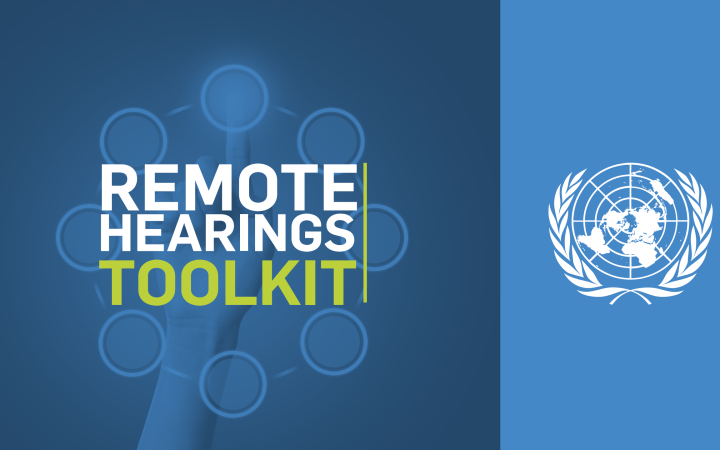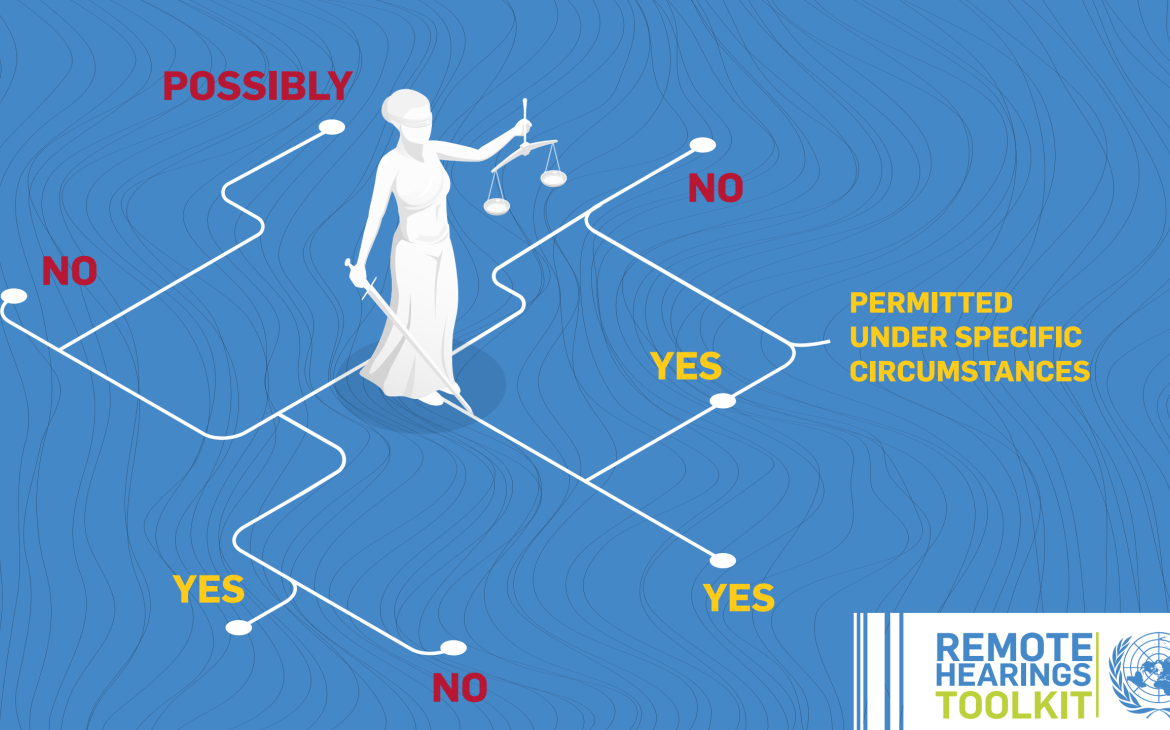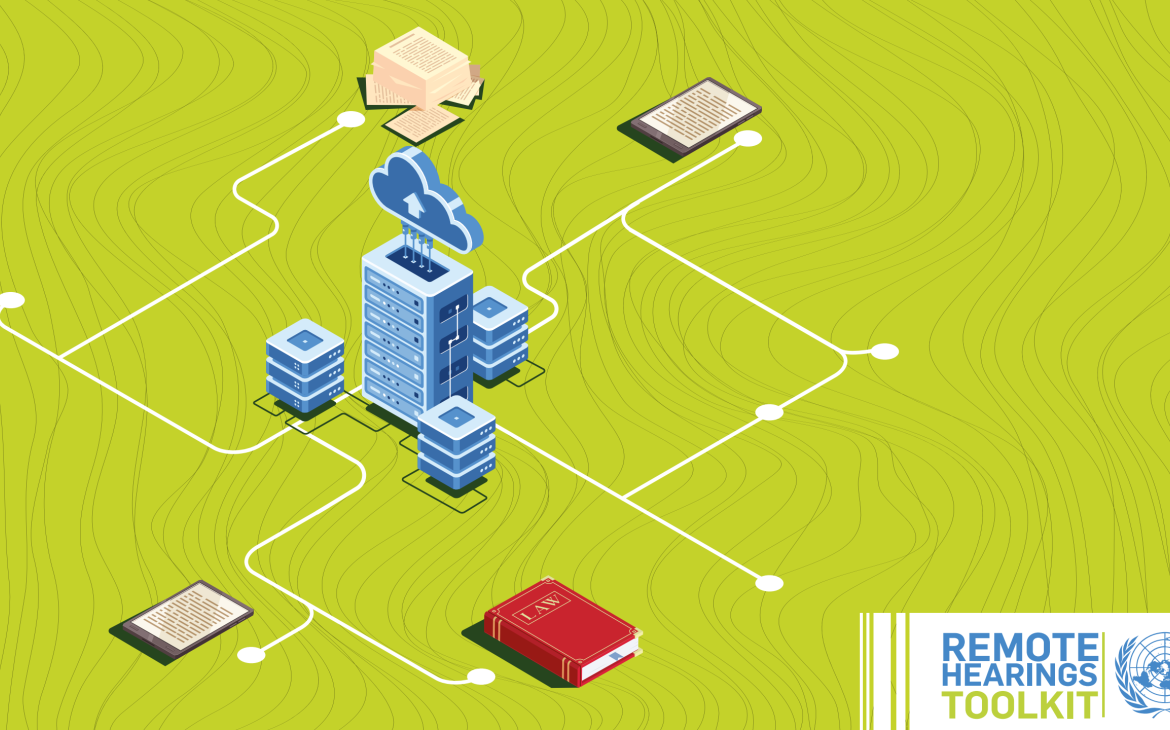17 September 2020, Geneva, Switzerland - The COVID-19 outbreak that began in late 2019 evolved rapidly and globally. The pandemic, and subsequent policy and security measures taken in response, impacted the administration of justice in every legal system around the globe. One of the greatest impacts is that lockdown measures and social distancing have rendered in-person hearings challenging or impossible. The disruption to conducting hearings and other judicial proceedings has the potential to significantly undermine access to justice, due process, and civil and human rights.
In response, the Justice and Corrections Service of the Office of Rule of Law and Security Institutions (OROLSI/JCS), in partnership with the United Nations Institute for Training and Research (UNITAR), created a Toolkit on Remote Hearing Decision-Making.
The Toolkit will help readers determine whether and how to use audio, videoconferencing, and other technologies to conduct remote hearings when in-person hearings are not feasible.
Given the wide variation in settings where hearings are conducted, it is not possible to provide uniform or prescriptive advice about using remote hearings. It is a decision for the courts to make, and local needs, conditions, and capabilities must govern. Instead, the Toolkit provides a decision-making framework and resources so that stakeholders can arrive at appropriate solutions for their particular contexts.
The vision of the Toolkit is to provide a practical step-by-step guidance for the use of legal stakeholders – ministry officials, judges, lawyers, court officials, and others – responsible for the administration of justice, who are interested in establishing a remote hearing system. Recognizing the unique historical, political and cultural background of each state, the Toolkit is consultative in nature and offers guidance on key considerations to be taken into account while planning the establishment of a remote hearing system. Furthermore, it has been based on the review of existing best practices and common challenges encountered by countries in which peacekeeping missions and other special political missions are deployed. It reiterates the main international standards to be considered to ensure due process rights, the right to a fair trial and access to justice, which are essential to guarantee respect for the rule of law in times of crisis. The Toolkit should be considered not only as an immediate response to COVID-19 but also for longer-term planning. It will be made available to readers in September 2020 on the UNITAR website.
Check out the last joint project by UN OROLSI and UNITAR - COVID-19 Preparedness and Response in Places of Detention Toolbox.
Overview of the Key Aspects
The Toolkit is divided into four branches of questions that are designed to help the reader determine whether their legal system is prepared for establishing a remote hearing system.
The Legal Permissibility branch involves a set of questions designed to determine general permissibility of remote hearings under current national legislation and, where restrictive statutes and regulations are in place, establish whether the legislation can be amended or suspended. Furthermore, it encourages court leaders to consider implementation-related permissibility, i.e. whether remote hearings should be implemented state-wide, by local jurisdiction, or by individual judge/court.
The Technical & Security Aspects branch helps to determine whether the legal system in question has the requisite technological, human and security capacity. This decision-making process emphasises strategic planning of types of platforms for internet-based audio and videoconferencing to be used, the revision of hardware and software requirements to guarantee that each participant has access to necessary technology, and encourages to consider establishing an electronic court filing system.
The Organisational & Logistical Aspects branch seeks to assess whether the legal system in question has the organisational and logistical capability to conduct remote hearings, and suggests possible solutions if the capability is unknown, known but incomplete, or incapable.
The last branch, Procedural Safeguards & Access to Justice, focuses on considerations of access to justice and due process when deciding whether and how to implement remote hearings. It requires considering procedural accommodations courts can make to ensure that access to justice is not infringed. It also assesses whether the plan developed for the establishment of remote hearings adequately protects the right to a fair trial and due process rights.




